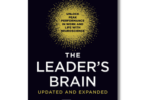
For decades, leadership identification has relied on personality inventories, interviews, and performance history. These tools are valuable, but they often capture who people are, not how they think and adapt under pressure. New research from Elizabeth “Zab” Johnson (Executive Director) and Michael Platt (Faculty Director) of the Wharton Neuroscience Initiative (WiN), Korn Ferry, and Lazul.ai, shows how neuroscience-informed, AI-enabled assessments can add a powerful new layer to leadership pipelines, especially at early career stages.…Read More











